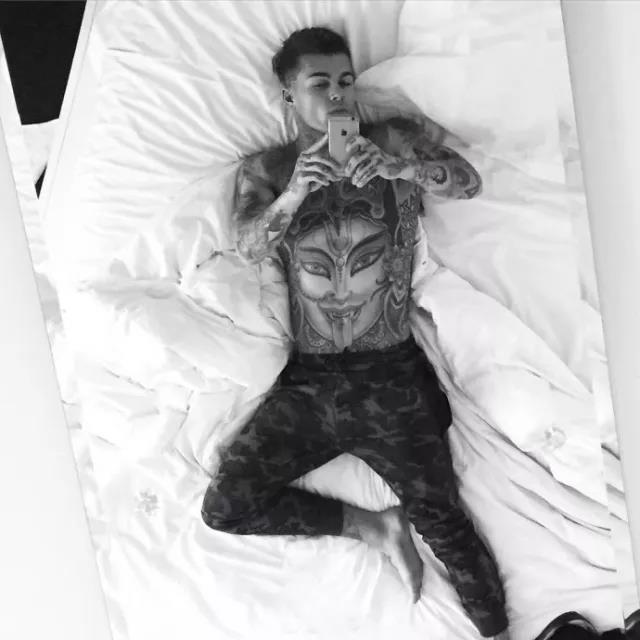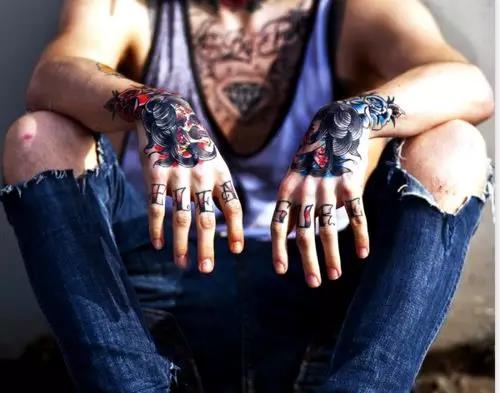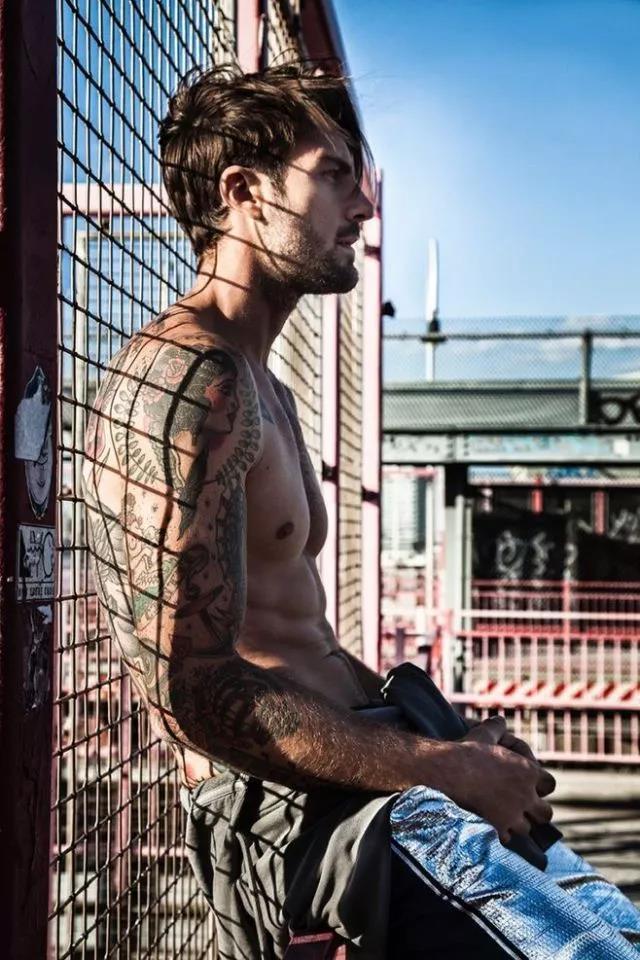
前 言
If you're one of those folks who doesn't like to see a tat sleeve, keep this in mind: The more tattoos you get, the more your body gets used to the painful process, effectively bolstering your immune system. At least that's the idea behind a new research from University of Alabama researchers.
如果你是一个不喜欢花臂的人,那记住这一点:你的纹身越多,你的身体就越习惯痛苦的过程,这可以有效地增强你的免疫系统。至少这是阿拉巴马大学研究人员的一项研究的新想法。

◆
In the study, recently publicized in the American Journal of Human Biology, 29 subjects aged 18 to 47 were examined before and after tattoo sessions. Specifically, their saliva was analyzed for the levels of immunoglobulin A and cortisol levels it contained; this antibody and hormone both indicate stress. (Many studies have shown that stress weakens a body's immune system and makes it more susceptible to sickness.)
这项研究最近在《美国人类生物期刊》上发布,在纹身前和纹身后检查了29名18 - 47岁的受试者。具体地说,他们的唾液被分析了免疫球蛋白A和皮质醇水平;这种抗体和激素都表明压力。(许多研究表明,压力会削弱人体的免疫系统,使其更容易生病。


◆
The researchers hypothesized that tattoo veterans, whose bodies were repeatedly exposed to the stress of being tattooed, would be less affected by the process than tattoo virgins. Indeed, the findings showed that the tat vets' immune systems had less signs of stress and reduced activity during the tattoo session than those of the newbies.
研究人员推测,纹身的老兵,他们的身体反复暴露在被纹身的压力之下,他们的纹身过程不会像纹身的初纹者那么受影响。事实上,研究结果显示,与新手相比,在纹身过程中,老手的免疫系统的压力和活动减少的迹象比那些新手更少。


◆
These results aren't necessarily surprising. Think about the first few times you lifted weights or went for a run. Your body was likely sore and stiff afterward, but the more you performed these activities, the more your body acclimated to them, and the less pain and discomfort you felt. That's basically what's happening during repeated tattoo sessions. What is novel about the study is that it focused on the body's immune system and stress as it relates to tattooing, something not previously studied.
这些结果并不令人惊讶。想想前几次你举重或者跑步。你的身体随后可能会感到疼痛和僵硬,但你进行这些活动的次数越多,你的身体对它们的适应能力就越强,你感受到的疼痛和不适也就越少。这基本上就是在重复纹身过程中发生的事情。这项研究的新颖之处在于,它把注意力集中在身体的免疫系统和压力上,因为它与纹身有关,这是以前没有研究过的。



◆
The experiment also implied that people with hearty immune systems are more likely to get multiple tats, as their bodies heal quickly from the process. In other words, people sporting a wealth of tattoos on their bodies are likely to be folks with strong immune systems. So perhaps frequent tattooing doesn't so much provide an immunity boost as serve as a marker for those who are healthier than most.
该实验还暗示,拥有强健免疫系统的人更容易有多倍数,因为他们的身体很快就能从这个过程中恢复过来。换句话说,身体上有大量纹身的人很可能是具有强大免疫系统的人。因此,也许频繁的纹身并不能起到增强免疫力的作用,但是它可以作为身体健康的标志。


◆
"My hope is that people with poor immune systems aren't subjecting themselves to a lot of tattoos, and no, I don't think it would give them as good a boost," emails Christopher Lynn, one of the study's authors and a University of Alabama associate professor of anthropology. "We think that that the boost from tattooing highlights what is already a good immune system. The 'boost' is less a boost than a priming effect, turning on the immune system and draws more attention to what is already good."
“我希望,免疫系统较差的人不要去接受多次的纹身了,我不认为这会给他们带来好处。” 研究报告的作者之一、阿拉巴马大学的人类学副教授Christopher Lynn表示: “我们认为纹身带来的好处会凸显出一个良好的免疫系统。提升不如刺激效果更好,这是一种启动效应,它开启了免疫系统,让人们更加关注已经很好的东西。



◆
Lynn says the researchers also collected information on the location of people's tattoos to see if that had any effect on the immune systems. Would, say, an extra-sensitive body part react differently to the tattooing process? Unfortunately, the study sample was too small to provide useful results. "But tattoo location might be important for a variety of reasons," he notes. "Is sensitivity and pain even related to [tattooing's] priming effect on the immune system? We don't know yet."
Lynn说,研究人员还收集了人们纹身部位的信息,看看这是否对免疫系统有影响。比如说,一个格外敏感的身体部位会对纹身产生不同的反应吗?不幸的是,研究样本太小,无法提供有用的结果。“但是纹身的位置很重要,原因有很多。”他说,“敏感性和疼痛是否对免疫系统的启动效应有关?”我们还不知道。”


◆
Lynn cautions not to put too much emphasis on the study's results. At least not yet. The sample was small and pretty homogeneous; subjects were largely young, middle-class, white, educated and in committed relationships. The tattoo facilities were also clean. But Lynn plans to build on his work by studying Samoan tattoos, which are created with objects such as sharp sticks, and often in less-sanitary conditions than that found in many American tattoo parlors.
Lynn告诫不要过分强调研究结果。至少不是现在,研究的样品少、而且分部均匀;研究对象大多是年轻、中产阶级、白人、受过教育的人,以及忠诚的伴侣,纹身设施也很干净。但Lynn计划通过研究萨摩亚人的纹身来完成他的工作,他的纹身是用锋利的棍子等物品制作的,它比许多在美国发现纹身店的卫生条件差。


